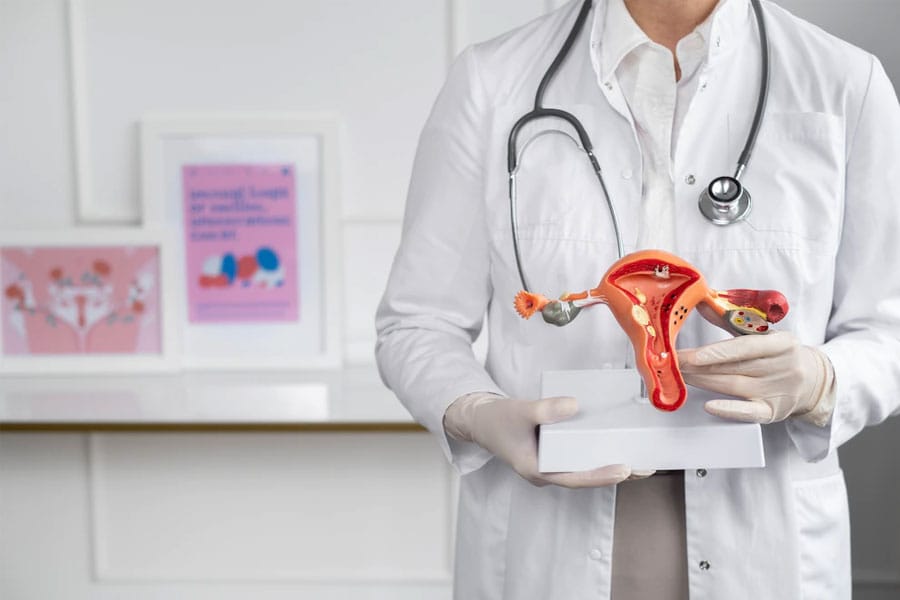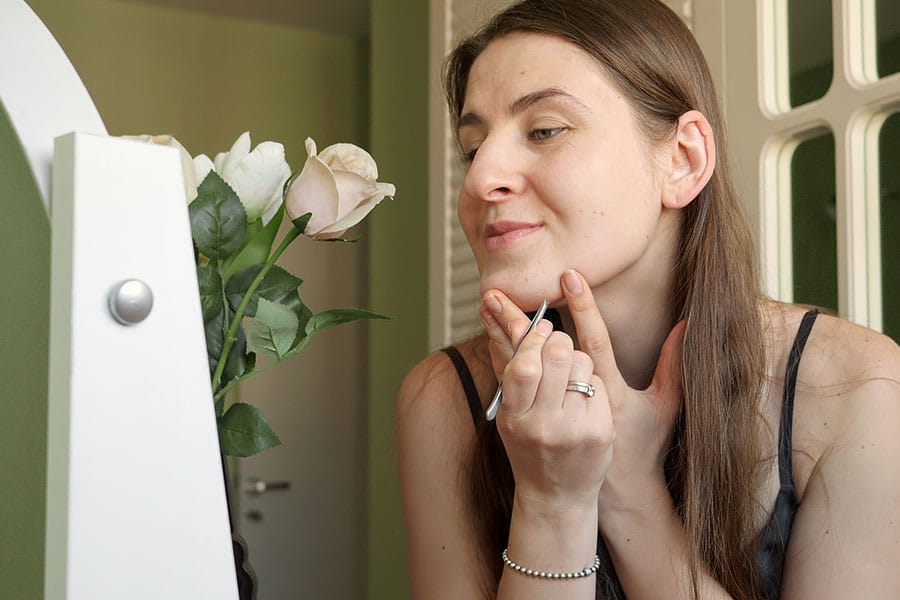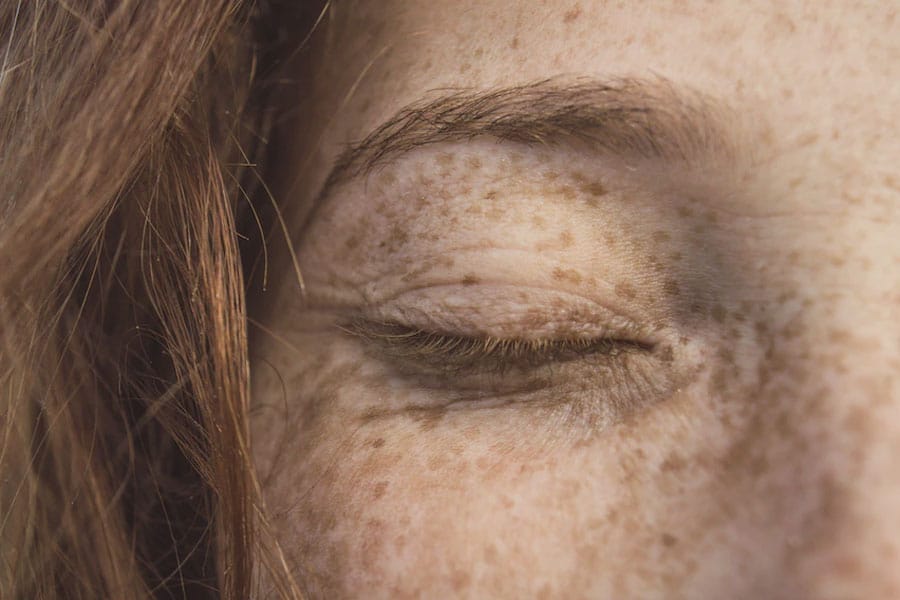5 Key Symptoms of PCOS: Unveiling the Telltale Signs
Introduction:
Polycystic Ovary Syndrome (PCOS) is a complicated hormonal disorder that affects a sizable quantity of women. Recognizing the symptoms of PCOS is crucial for a well-timed prognosis, effective management, and improved satisfaction of life. In this comprehensive guide, we can delve into the numerous signs and symptoms associated with PCOS, dropping light on their underlying reasons, impact, and the importance of searching for professional care. By knowledge of these symptoms, individuals can take proactive steps towards complete PCOS control.
Understanding Polycystic Ovary Syndrome (PCOS)

Polycystic Ovary Syndrome (PCOS) is a complicated and multifaceted hormonal disorder that casts its impact on numerous dimensions of a girl’s well-being. At its center, PCOS is marked by hormonal imbalances, specifically a multiplied presence of androgens, usually known as male hormones. These imbalances disrupt the complicated interaction of hormones that regulate the menstrual cycle and ovulation, giving rise to a constellation of symptoms that embody both physical and emotional geographical regions. These signs and symptoms expand past the reproductive machine, affecting metabolic, dermatological, and psychological aspects of a female’s health.
While the exact triggers of PCOS remain a subject of ongoing studies, genetic predisposition, and insulin resistance have emerged as distinguished elements in its improvement. Genetics can contribute to a character’s susceptibility to PCOS, with an own family record often playing a position. Additionally, insulin resistance, a circumstance in which the body’s cells have a faded reaction to insulin, is intricately related to PCOS.
Insulin resistance can lead to expanded levels of insulin inside the bloodstream, which, in turn, stimulates the ovaries to supply extra androgens. These hormonal fluctuations similarly perpetuate the cycle of disrupted ovulation and hormonal imbalances characteristic of PCOS. As researchers continue to delve into the intricate mechanisms of this syndrome, clearer expertise of its causes and more subtle methods of management are steadily rising.
Symptom 1: Irregular Menstrual Cycles

Irregular menstrual cycles function as a distinguished and often unsettling hallmark of Polycystic Ovary Syndrome (PCOS). Within the difficult net of hormonal imbalances that outline this circumstance, the menstrual irregularities stand out as vital indicators. Women grappling with PCOS frequently come upon a spectrum of irregularities in their menstrual patterns, ranging from rare to extended cycles, or even periods of whole absence. These disruptions stem from the problematic interplay of hormones in the frame, specifically, the expanded androgen degrees that disrupt the delicate dance of ovulation.
Central to the irregularity of menstrual cycles in PCOS is the compromised ovulatory system. Ovulation, the month-to-month release of an egg from the ovaries, is vital for the regularity of menstrual cycles and fertility. In PCOS, hormonal imbalances disrupt this system, causing the ovaries to expand into several small cysts that save you from ovulation. As a result, girls can also experience lengthy gaps between periods, erratic bleeding, or maybe months without menstruation. This unpredictability can be emotionally distressing and, past its immediate implications, holds profound results for reproductive health.
The lack of ability to expect fertile home windows hinders families from making plans efforts, regularly presenting a massive venture for those searching to conceive. Furthermore, abnormal menstrual cycles also can influence the threat of developing other health worries, including endometrial hyperplasia, which underscores the critical significance of early diagnosis and comprehensive management of PCOS.
Symptom 2: The Unwanted Hair Dilemma

Excessive hair increase, or hirsutism, stands as a wonderful hallmark of PCOS, in addition to highlighting the difficult hormonal imbalances that underpin this situation. Hirsutism is characterized using the increase of coarse and dark hair in regions wherein it is usually more related to male pattern hair increase, inclusive of the face, chest, abdomen, and back. The root reason for this unwanted hair boom lies within the elevated levels of androgens, frequently known as male hormones, which are a function of PCOS. These androgens stimulate the hair follicles to supply thicker, darker hair, contributing to the advent of hirsutism.
Beyond its bodily manifestation, hirsutism can solidify a giant emotional and mental burden on individuals tormented by PCOS. The visible and on occasion socially stigmatized nature of extra hair growth can lead to emotions of self-consciousness, decreased shallowness, and heightened tension. The emotional toll can enlarge further, impacting non-public relationships, frame picture, and universal quality of existence.
The relentless pursuit of hair removal methods, such as shaving, waxing, or laser remedies, can emerge as a source of strain for the ones grappling with hirsutism. Recognizing the emotional strain related to hirsutism is crucial in imparting complete take care to people with PCOS, and addressing each of the physical and emotional factors of this symptom becomes an imperative part of a holistic method of control.
Symptom 3: Acne and Oily Skin

PCOS, or Polycystic Ovary Syndrome, is characterized by difficult hormonal imbalances that amplify their influence on past reproductive health. One excellent manifestation of these hormonal fluctuations is the improvement of pimples and oily pores and skin. Elevated ranges of androgens, frequently referred to as male hormones, function as a catalyst for this dermatological assignment. These androgens stimulate the sebaceous glands, located under the skin’s floor, to provide extra sebum or oil. This surge in sebum production can create surroundings conducive to clogged pores, leading to the formation of pimples.
The presence of acne breakouts can be more than just a superficial concern; it could deeply affect an individual’s self-esteem and ordinary well-being. The nature of pimples can be emotionally distressing, affecting how one perceives themselves and how they’re perceived with the aid of others. As a result, individuals with PCOS may also experience various emotions, from frustration and embarrassment to reduced self-confidence. Addressing the dermatological demanding situations posed via PCOS is, therefore, a critical aspect of complete care, selling both physical and emotional restoration.

The intertwining courting among PCOS, hormonal fluctuations, and dermatological troubles would not virtually forestall acne; it can expand to oily pores and skin as well. The overactive sebaceous glands in reaction to heightened androgen stages result in excessive oil manufacturing. This excess oil can create a chronic feeling of greasiness and contribute to a glittery complexion. The mixture of acne breakouts and oily pores and skin can create a difficult cycle, where zits can similarly get worse because of accelerated sebum manufacturing. This cycle not only a man or woman’s appearance but also their emotional state.
The visible evidence of those pores and skin concerns can cause a feeling of self-cognizance and impact day-by-day interactions, social engagements, and even career aspirations. Recognizing the complicated connection between PCOS-prompted hormonal fluctuations and dermatological demanding situations is crucial for providing targeted interventions that cope with both the bodily and emotional well-being of individuals affected by PCOS. At Womb IVF Fertility Center, we acknowledge those complexities and offer a complete technique that encompasses both scientific solutions and emotional assistance to empower people to regain control over their pores skin fitness, and usual confidence.
Symptom 4: Weight Fluctuations and Insulin Resistance

Insulin resistance, a regularly occurring hallmark of PCOS, underscores the intricate connection between metabolic dysfunction and the syndrome. This physiological phenomenon occurs when the frame’s cells end up less conscious of the results of insulin, the hormone responsible for regulating blood sugar degrees. In the context of PCOS, insulin resistance can wreak havoc on sensitive hormonal stability. Not handiest does it make a contribution to weight advantage and avert weight loss efforts, but it additionally triggers a cascade of events that extend the syndrome’s signs and symptoms.
Elevated insulin levels stimulate the ovaries to provide greater androgens, similarly exacerbating hormonal imbalances that underpin PCOS. This creates a vicious cycle where hormonal disturbances cause weight advantage, which in flip worsens insulin resistance, thereby intensifying PCOS symptoms. The fruits of those metabolic challenges now not handiest affect physical fitness but also impact emotional well-being, as people grapple with the toll that weight fluctuations and hormonal imbalances can tackle their shallowness and mental state.
To ruin this cycle and alleviate the weight of PCOS symptoms, handling insulin resistance will become paramount. Lifestyle changes, together with adopting a balanced and nutritious food regimen, accomplishing everyday bodily hobbies, and keeping a healthy weight, play a pivotal role in mitigating the effect of insulin resistance. A well-designed weight-reduction plan that emphasizes complicated carbohydrates, lean proteins, and healthful fats can help stabilize blood sugar degrees and improve insulin sensitivity.
Regular exercising enhances the frame’s capacity to make use of glucose efficiently and promotes weight reduction, which in turn enables the alleviation of insulin resistance. Additionally, stress control strategies, along with mindfulness and rest sporting events, can contribute to hormonal equilibrium and metabolic concord. By addressing insulin resistance through those holistic approaches, people with PCOS can take proactive steps toward restoring hormonal balance, managing weight fluctuations, and in the end enhancing their standard fine of life.
Symptom 5: Emotional health and PCOS

The elaborate connection between PCOS and emotional well-being can’t be unnoticed. Beyond its physical manifestations, PCOS can appreciably affect an individual’s emotional health, main to several psychologically demanding situations. Coping with physical signs like abnormal periods, hirsutism, and acne can take a toll on self-esteem and frame photo.
The uncertainty surrounding fertility challenges can evoke feelings of unhappiness, frustration, or even an experience of inadequacy. Additionally, the hormonal imbalances inherent in PCOS can contribute to temper swings and heightened emotional sensitivity. These emotional struggles often result in improved levels of stress, anxiety, and despair, making the want for complete mental support an important aspect of PCOS control.
Acknowledging and addressing the psychological impact of PCOS is paramount for holistic care. Providing a safe space for people to openly talk about their emotional challenges can empower them to navigate the complicated feelings related to the situation. Counseling and assisting businesses offer treasured gear for managing stress, dealing with anxiety, and fostering emotional resilience. By fostering a holistic approach that addresses both the physical and emotional dimensions of PCOS, healthcare carriers can decorate the overall well-being of individuals, enabling them to embark on an adventure of self-acceptance, empowerment, and renewed emotional balance.
Wrapping It Up

Recognizing and knowledge of the signs of PCOS is an important step in the direction of proactive management and progress of existence. At Womb IVF and Fertility Center, we understand the multifaceted nature of PCOS and offer a holistic technique for analysis, treatment, and assistance. With our experienced crew, modern-day technology, and compassionate care, we’re devoted to empowering individuals with PCOS on their adventure closer to the highest quality reproductive fitness and emotional well-being.
To take step one towards comprehensive PCOS management, we invite you to schedule an appointment with Womb IVF and Fertility Center and embark on a path of empowerment and healing.
Image Source: elements.envato.com | pexels.com | freepik.com | unsplash.com